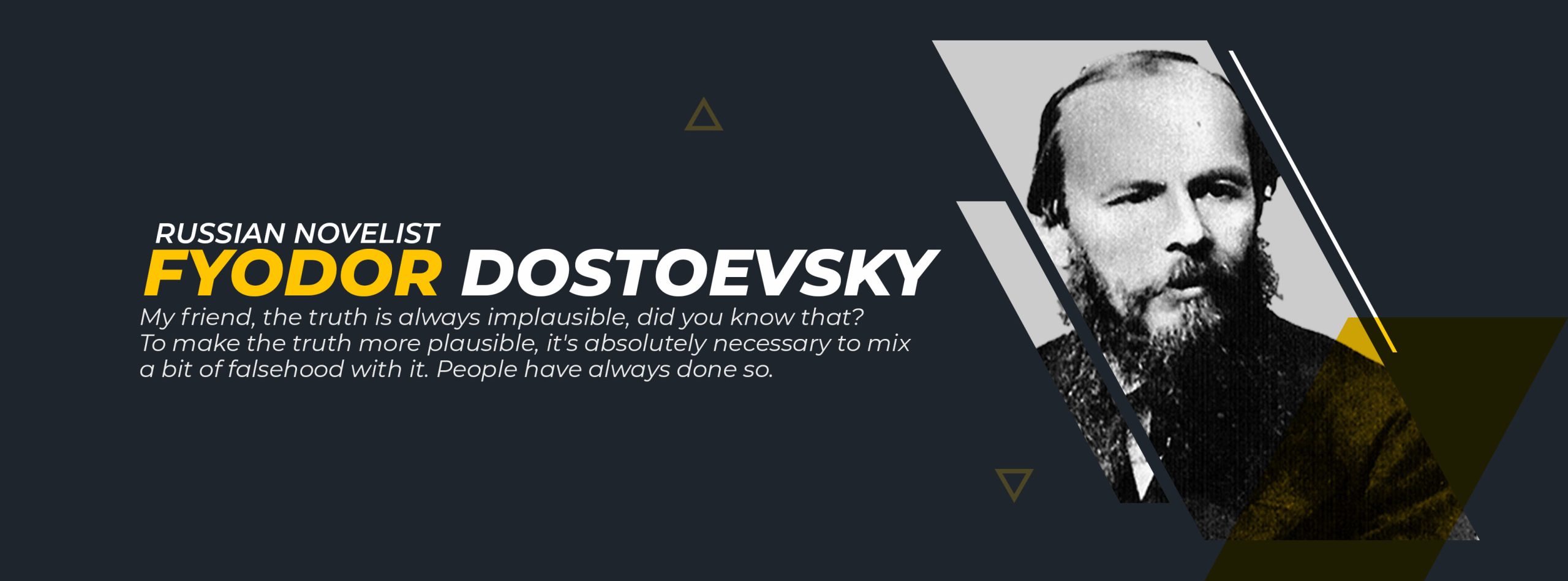Top 10 most inspiring quotes by Fyodor Dostoevsky
- The secret of man’s being is not only to live but to have something to live for.
- People really do like seeing their best friends humiliated; a large part of the friendship is based on humiliation; and that is an old truth,well known to all intelligent people.
- Nothing is more seductive for a man than his freedom of conscience, but nothing is a greater cause of suffering.
- Nature doesn’t ask your permission; it doesn’t care about your wishes, or whether you like its laws or not. You’re obliged to accept it as it is, and consequently all its results as well.
- Besides, nowadays, almost all capable people are terribly afraid of being ridiculous, and are miserable because of it.
- Let us not forget that the reasons for human actions are usually incalculably more complex and diverse than we tend to explain them later, and are seldom clearly manifest.
- But men love abstract reasoning and neat systematization so much that they think nothing of distorting the truth, closing their eyes and ears to contrary evidence to preserve their logical constructions.
- What would life be if we had no courage to attempt anything? Taking a new step, uttering a new word, is what people fear most.
- Since man cannot live without miracles, he will provide himself with miracles of his own making. He will believe in witchcraft and sorcery, even though he may otherwise be a heretic, an atheist, and a rebel.
- My friend, the truth is always implausible, did you know that? To make the truth more plausible, it’s absolutely necessary to mix a bit of falsehood with it. People have always done so.

Fyodor Dostoevsky (1821–1881) was a renowned Russian novelist and philosopher, acclaimed for his profound exploration of human psychology and morality. Born in Moscow, he experienced a troubled childhood marked by his father’s murder and financial hardships. These early struggles deeply influenced his later works.
Dostoevsky’s literary career began with the publication of “Poor Folk” (1846), but his breakthrough came with “Crime and Punishment” (1866), a psychological thriller examining guilt and redemption. He continued to produce notable works, including “The Idiot” (1869), “Demons” (1872), and “The Brothers Karamazov” (1880), which delved into complex ethical and existential questions.
His writings often depicted tormented characters grappling with their inner conflicts and the moral dilemmas of their time. Dostoevsky’s themes of suffering, religious faith, and the human condition were influenced by his own spiritual journey, which led him from atheism to a devout Christianity.
Dostoevsky’s impact extended beyond literature. His ideas contributed to the development of existentialism and psychoanalysis, influencing thinkers like Friedrich Nietzsche and Sigmund Freud. His legacy endures as his works continue to be studied, analyzed, and revered for their deep insights into the intricacies of the human soul.
👉Listen to the best music from all over the world at www.liveonlineradio.net #Fyodor_Dostoevsky #quotes #FM #Online_radio #radio #live_online_radio #live #world_radio





